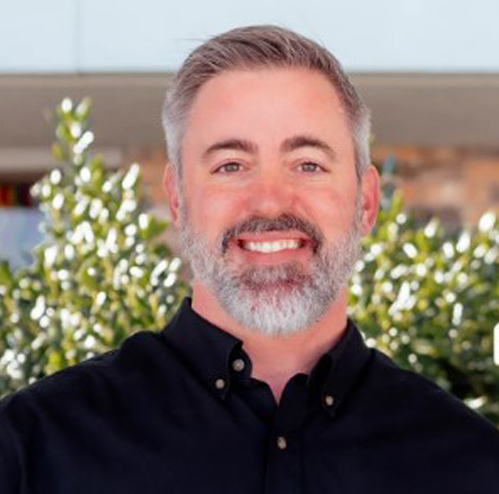
Wade Killough
Wade Killough, D.Min., is the lead pastor of Anchor Fellowship in Granbury, Texas. He has placed his ordination credentials with the Free Methodist Church USA, and Anchor Fellowship is in a discernment process with the FMCUSA about a potential relationship between Anchor Fellowship and the denomination. This article initially appeared in The River Conference’s The Current email newsletter, and it is republished with permission.
By Wade Killough
I’d like a Whataburger with bacon and cheese, please. Add jalapenos. And instead of fries, can I have onion rings instead? And for a drink, I’d like a large half and half tea with easy ice. Thank you!
I know many of you reading this are not from Texas. However, one of the craziest things a Texan has had to go through in recent years was when Whataburger, based out of Corpus Christi, was purchased in 2019 by a Chicago-based investment group.
Texans were up in arms over what might happen with a bunch of Yankees running things, and what many hated more than a Yankee running things in a Texas-based institution was change.
Most lacked trust that what had been meaningful to them in the past would still be important to decision-makers as they focused on the future.
_
“Whataburger had opted to play it safe.”
_
While customers in 2019 were concerned about what they might lose, the corporate headquarters and franchise owners were trying to find ways to make sure Whataburger thrived, and didn’t simply survive, moving forward.
So do you know why Whataburger had to sell to an out-of-state firm?
It was because, for over 20 years, Whataburger had opted to play it safe. In doing so, the brand grew old and stale.
Through inattention, Whataburger began to drift and focus on what was comfortable, not what was needed. It was a thousand little decisions not made over many years that led to loss of market share and to a growth of apathy amongst customers.
And apathy breeds apathy.
The Whataburger of 2019 still served food, but it was not the Whataburger of 1999 or 1979. Whataburger had lost its vibe.
For change to happen, the ones in charge had to acknowledge there was a problem. That’s not easy for leaders to do. Newton’s first law of motion states that a body at rest will remain at rest unless an outside force acts on it.
_
“At least one person in the room had to be brave enough to speak up and reframe the problem as an opportunity.”
_
Then they had to see that the problem was actually an opportunity for something better. Most of us are really good at pointing out problems. In Whataburger’s case, at least one person in the room had to be brave enough to speak up and reframe the problem as an opportunity.
Then someone had to see that the opportunity had a solution. Then a team of people had to work together to figure out what the steps of the solution were.
Then the decision-makers had to be brave enough to pull the trigger and implement the solution to address the opportunity that emerged from acknowledging there was a problem in the first place.
Since those angst-filled days of 2019 when news broke of the sale of Whataburger, the restaurant chain is growing, thriving, and finding new customers.
At this point, you might be wondering, “What does this Whataburger story have to do with anything?”
Trust Matters
This is a story about trust.
I trust you gleaned something from the Whataburger story that is applicable to your life.
Let me go a bit deeper and frame trust with three questions for you to prayerfully ponder in your context as a Christ-follower serving in church or extension ministry:
Do you trust God has better plans for you, your family, and the church you serve than you do?
Do you trust that there is a Divine solution to the opportunity presented to you by the human problem you are facing as a leader?
Do you trust that Jesus does love you, does forgive you, and does have a purpose for you?
_
“If we don’t believe Jesus is who we say He is, it also changes everything.”
_
We can’t unpack everything in these three questions, but we can focus on Matthew 6:25-34 as a promise to cling onto.
Jesus teaches about trusting as a counter to worrying to a group of people who worried their lives to death. If Jesus is who we profess Him to be in the Apostles’ and Nicene creeds, it changes everything. If we don’t believe Jesus is who we say He is, it also changes everything.
After having served in local churches for nine years and completing seminary, I had the honor and privilege to plant a church that I ended up leading for ten years.
It wasn’t until I started without land, building, or people that I actually developed a theology of the church. It took me getting out of the comfort of the existing church and wandering in the desert of trusting God’s provision to understand God’s role in the church! It boils down to this:
The church is God’s idea; Christ is the Head; we follow the Leader.
_
“Anything good that comes, comes from Him.”
_
The church isn’t my idea. I don’t start anything. I am a sinner being made new by grace walking with other sinners being made new. Nothing originates with me. That is freeing! I have a grace-filled responsibility to join up with God and trust His paths are straight. Anything good that comes, comes from Him. Anything bad can be redeemed.
Simply put, I am a mere stagehand — God is the main actor in this drama (Mark 1:7-8 MSG)!
Reflection Questions
How did God stir you in this reading on trust (John 15:26)?
What are you going to do about it (James 2:14-26)?
How will your next steps be based in trusting the Lord (Proverbs 3:5-6)?
+

Wade Killough
Wade Killough, D.Min., is the lead pastor of Anchor Fellowship in Granbury, Texas. He has placed his ordination credentials with the Free Methodist Church USA, and Anchor Fellowship is in a discernment process with the FMCUSA about a potential relationship between Anchor Fellowship and the denomination. This article initially appeared in The River Conference’s The Current email newsletter, and it is republished with permission.








